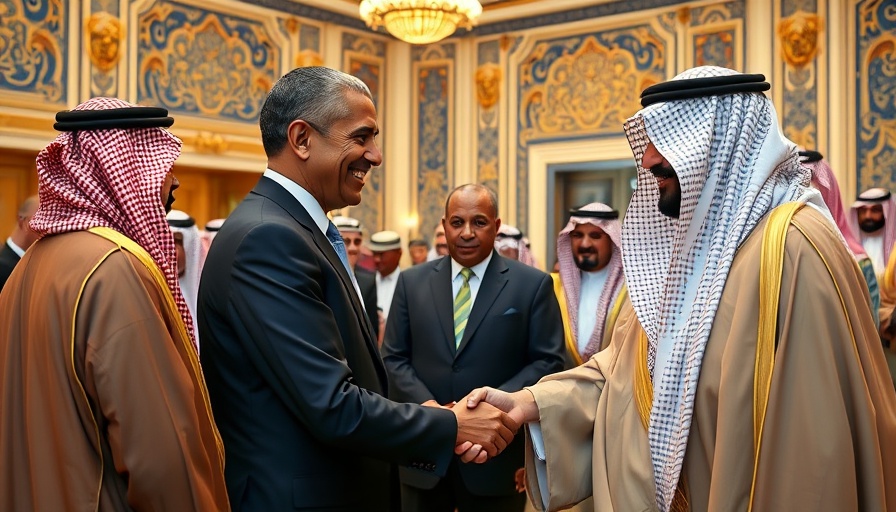
Trump’s Impact on Saudi-American Relations: A New Era?
President Trump’s recent visit to Saudi Arabia signals a potentially transformative phase in the dynamics of Saudi-American relations. During his time in Riyadh, Trump lavished praise on Crown Prince Mohammed bin Salman, promoting not just friendship but a vision for economic collaboration. This relationship shift, highlighted by plans for significant investments in infrastructure and technology, raises questions about the future of Saudi investment in American businesses and the overall economic strategy of both nations.
Popular Sentiment: Can It Shape Politics?
Across Riyadh, many Saudis expressed admiration for Trump, viewing him as a "straight shooter." Self-help influencer Mohammad Bahareth captured this sentiment, noting Trump’s boldness as a source of inspiration. This connectivity illustrates how effective personal branding can sway public opinion, influencing political climates in unexpected ways. For many young Saudis, Trump represents a figure whose irreverence breaks through traditional barriers. How this affection translates into political support or sustained influence within Saudi policymaking remains to be seen.
Cultural Connections: Shared Values and Visions
Many Saudis believe there is a cultural alignment between themselves and Trump, particularly in terms of business-oriented pragmatism and personal forthrightness. Trump's endorsement of both traditional Saudi values and contemporary capitalist ideals resonates within certain societal segments, leading to renewed enthusiasm for U.S.-Saudi partnerships. These connections underscore the importance of emotional undertones in global politics, suggesting that soft power may be as influential as military might or economic sanctions.
The Surprising Announcement: Lifting Sanctions on Syria
One of the most striking elements of Trump’s visit was his announcement about ending American sanctions on Syria. This statement caught many by surprise and raised eyebrows among political analysts. The implications of this policy shift could send tremors through existing alliances in the Middle East. By altering the landscape in Syria, Trump may be attempting to reestablish U.S. influence in the region, paving the way for new partnerships while igniting debates over the motivations and consequences of such a bold move.
Future Predictions: What Lies Ahead?
As Saudi Arabia navigates multiple alliances, Trump's relationship with the kingdom could lead to significant geopolitical shifts. Observers might ask: Will this friendship yield tangible benefits for citizens on either side? The expectations surrounding reversed sanctions and business investments could amplify scrutiny as Saudi Arabia continues diversifying its economy beyond oil reliance.
Counterarguments: Voices of Dissent
Not all responses to Trump’s visit have been enthusiastic. Critiques about his approach have emerged, highlighting concerns over human rights violations in Saudi Arabia and the ethics of engaging with a controversial figure like Mohammed bin Salman. This dissenting perspective points to a critical reminder: public approval does not equate to universal agreement. The challenge will be balancing commercial interests with ethical considerations in U.S.-Saudi relations moving forward.
Conclusion: A Call for Vigilance in Diplomacy
In summary, Trump’s visit to Saudi Arabia has opened up numerous avenues for discussion on diverse relationships shaped by culture, admiration, and critique. For American audiences, understanding these dynamics can enhance our awareness of global affairs and the nuanced, often complicated relationships that shape our world. As events develop, it will be crucial to watch how these interactions evolve and what they mean for future diplomacy. Readers are encouraged to stay informed and engaged with these changes as they unfold.
 Add Row
Add Row  Add
Add 




 Add Row
Add Row  Add
Add 

Write A Comment